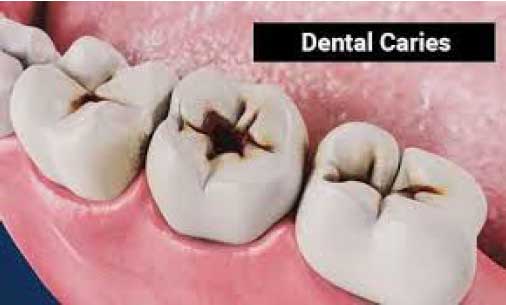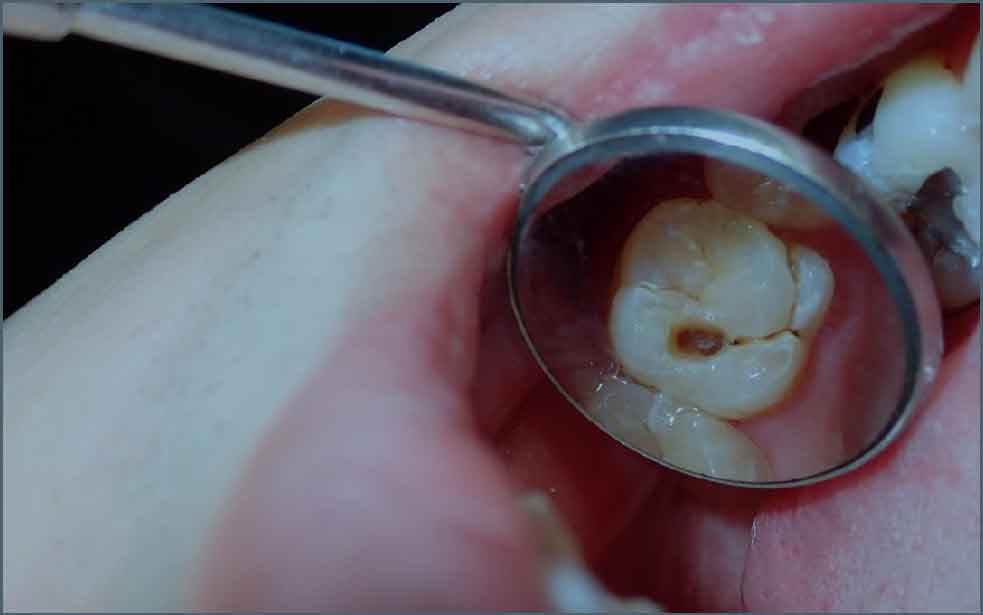What exactly is tooth decay? Tooth decay, as any medical professional will tell you, is a very serious dental ailment that can lead to serious dental health problems if not properly diagnosed and cared for. Essentially, tooth decay is any oral damage done to your teeth over a long period, rather than direct trauma such as a sports fracture. The condition of tooth decay often occurs slowly, over time, which causes the protective enamel on your teeth to gradually weaken. This weakening allows bacteria to colonize the mouth, causing a generally unpleasant dental issue known as toothaches.
Table of Contents
Tooth Decay Symptoms
The most common tooth decay symptom includes a white-colored sore, or cavity, that develops in your gums near your front teeth. Other possible symptoms include a dark yellowish or brownish “bulk” in the gums near the back teeth, pain when chewing, or when the toothbrush
is brushed or flossed. If left untreated, toothaches can quickly turn into serious dental problems that can threaten your health and even cause teeth to fall out.
1. Swollen gums near the tender tooth
Another very common symptom is swollen gums near the tender tooth. These swollen gums can be painful, and they can also bleed easily. In addition to swollen gums near a tooth, you might also experience a whitish “fog” on your mouth, which is usually caused by bacteria. When this
thick, white film begins to appear on your cheeks, tongue, or gums near the tooth, you should visit your dentist as soon as possible. A toothache caused by inflammation or infection of the gums near a tooth is more likely to be severe and may require immediate dental care.
2. Gums are red and irritated
You might also notice that your gums are red and irritated. These symptoms are also signs that you might have gum disease, called gingivitis. Gum disease causes inflammation and redness of the gums. Also, dental plaque forms on teeth, and if you have gingivitis, you may notice that it looks like you have a buildup of dental plaque, which is also seen in people with
periodontitis. If you want to prevent cavities, you need to stop the formation and discoloration of dental plaque.
3. Pain in the jaw joint
Another common symptom is a pain in the jaw joint, which can occur when the nerve that controls the use of your jaw joint is damaged. Nerve signals are transmitted from the brain to the mouth through the nerves in your tooth. When nerve damage occurs, the communication between your
brain and your mouth stops, causing you to feel pain. Because tooth decay and inflammation can weaken and damage these nerve signals, you may need to have a root canal.

Tooth Decay Treatment That Can Help Prevent Cavities
Are you looking for a tooth-decay treatment that will give you the results you need without the expense and hassle of visiting the dentist? There are many different home remedies for tooth decay. They range from do-it-yourself options that are easy to do by yourself, all the way up to professional dental treatment. But how do you know which treatment is right for you? Here are a few things you should know about each option.
Types of tooth decay treatment
There are two types of tooth decay treatment: dental filling and cavity filling. If your tooth has an obvious cavity, you can choose to have a dental filling. These come in all shapes and sizes and can be quite affordable. They are placed over your natural tooth to resemble a natural tooth. Dental fillings require regular dental visits, but they are less painful than natural fillings.
If your tooth has no visible decay, an enamel inlay may be the right choice for you. These types of filling materials contain fluoride and will not help with cavities. An enamel inlay can be placed directly on your teeth, or you may choose to have a bonding procedure done.
Bonding procedures are performed by your dentist and are almost similar to dental fillings, except that they do not require surgery. The dentist will place a covering of resin on your teeth, which will help them match your natural teeth’ color. Resin is the same material that you will find under your dentin layer. However, instead of hardening the resin, it has broken down by acids present in your mouth. This will help prevent the decay from spreading into your gums and make your teeth appear healthier in appearance.
Regardless of the type of tooth decay treatment you choose, it is important to visit your dentist regularly. Not only can he/she recommend the best course of action, but he/she can spot any problems before they become a serious problem. Early detection of cavities not only prevents more serious problems but can also help you avoid having to undergo tooth enamel
replacement when the time comes.
Common factors that can lead to tooth decay
One of the most common factors that can lead to tooth decay is poor oral health. Poor oral health includes using tobacco products, drinking alcohol, and having poor eating habits. These habits all affect the saliva production rate in your mouth. If saliva production decreases, it is less likely for oral bacteria to grow and cause cavities. Also, saliva plays an important role in removing food particles from the teeth and the oral cavity. Therefore, practicing good oral hygiene should be high on your list of priorities.
Your dentist may recommend that you see a specialist for a specific type of tooth decay treatment. Some examples of this include endodontic treatments, root canals, and cosmetic procedures such as veneers. The specialist can give you more information about which type of treatment would be best for you and your lifestyle. For example, if you smoke or drink coffee every day, it recommended that you see a dentist every six months for an oral health check-up.
Home Remedies For Tooth Decay
Home remedies for tooth decay treatment include apple cider vinegar and baking soda, and herbs for cavity-fighting. There is no doubt that maintaining your oral hygiene is important for your present and future well-being. However, if left unchecked, tooth decay can result in severe pain, serious dental complications, and costly dental treatments. You need to know your options so you can make an informed decision on which one is right for you.
1. Brushed your teeth two times a day
First, there is good old-fashioned brushing. It would help if you brushed your teeth two times a day, once in the morning and once at night. For best results, you should use
fluoridated toothpaste because this will help prevent cavities. Fluoride toothpaste also helps to prevent further staining, making it easier to remove food particles that get stuck between your teeth. You can buy toothpaste at most drugstores and grocery stores, but if you want to get the real thing, talk to your dentist first. 2.Drinking lemon water
Home remedies for tooth decay treatment include drinking lemon water, eating sage tea, or rinsing your mouth with apple cider vinegar. All of these can help you fight infection and prevent more serious dental issues down the road. They can also help you avoid making those embarrassing trips to the dentist, especially if the decay is caught early and not allowed to progress.
3. Proper flossing and brushing
It is also essential to brush your teeth regularly and follow the proper flossing and brushing technique to prevent tooth decay. Remember to brush the back and sides of your teeth as well as your gums. Also, floss every night after you eat. It would help if you also visited your dentist for regular cleaning and check-ups to ensure your teeth and gums are healthy. If you follow these recommendations, you can easily fight against cavities and other oral health issues.
Conclusion
If you have had a toothache and are wondering whether it was tooth decay, the next step is to make an appointment with a dentist. If you have not had a toothache and are concerned about having one, take some x-rays so your dentist can get a closer look at what is causing the pain. A toothache that is felt in the jaw, around the lips, and in the back of the throat also could be a sign of a tooth problem. The toothache may feel like it is going away. But it usually does not go away permanently with regular brushing and flossing. Also, if you notice that your toothache returns after a few days of treatment with over-the-counter antiseptics, you should see your dentist immediately for a more effective treatment.


1 thought on “Tooth Decay – Treatment That Can Help To Prevent Cavities”